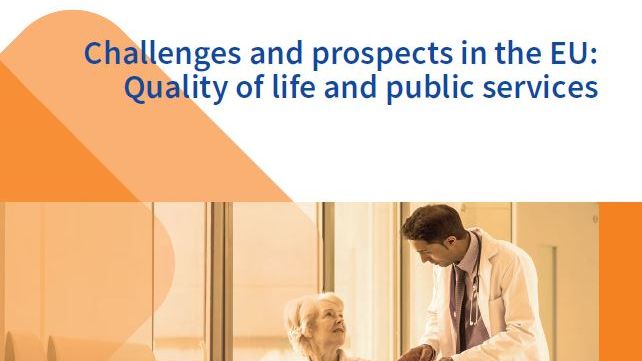
News -
Healthcare in the twilight zone: Europe's squeezed middle struggle to access health services
People in the lowest income groups remain the most likely to report difficulties in accessing primary care services across the European Union, according to Eurofound research. More than 8 out of 10 people in the EU reported using health services in 2016, but many still struggle to access services, including those with incomes just above the threshold that would entitle them to state support. Eurofound's new flagship report on Quality of life and public services looks at a multitude of different issues related to public services – including those in this healthcare 'twilight zone' who in some Member States report more financial issues with access to health services than those on the lowest incomes.
The access and quality of healthcare services is a key composite of the new flagship report, which analyses the major developments in quality of life and public services in the EU in recent years. The chapter on healthcare services, which is available as its own standalone output, reinforces how vital quality and accessible healthcare is for people in Europe, particularly given the challenges of demographic ageing. Eurofound's analysis shows that, while people in vulnerable situations continue to need urgent support, it is important for policymakers to also recognise groups that are just above support thresholds.
Overall, people in the lowest income groups remain the most likely to report difficulties in accessing primary care services, but in several countries it is those in middle income quartiles that report struggling the most. This was notably the case in Croatia, Greece, Italy and the UK. The report recommends incremental income thresholds, highlighting that digitalised benefit and tax administration could ease implementation and ultimately improve perceptions of fairness in service provision.
Eurofound's analysis also places healthcare services firmly in the context of wider societal and labour market challenges. It emphasises how mental and physical health can be promoted via adequate infrastructure, housing and local areas that enable healthy behaviours - highlighting that prevention measures are particularly effective when people are enabled to build physical activity into their daily lives.
Read more
- Download the report ‘Challenges and prospects in the EU: Quality of life and public services’
- Flip through the Chapter ‘Healthcare services: Access and quality’
- Surf the data: European Quality of Life Survey 2016



